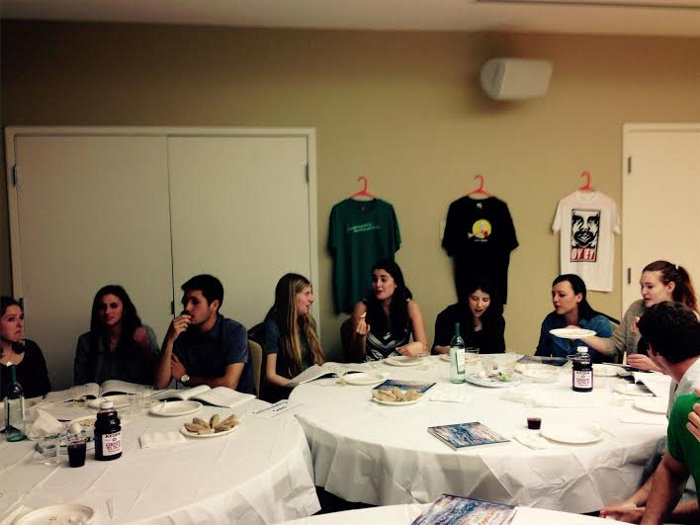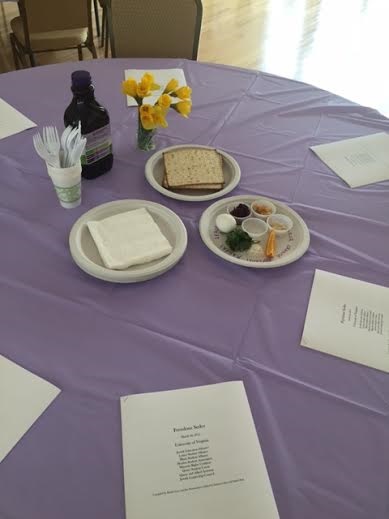At Passover, Otto Warmbier and I aimed to make the environment a topic of Jewish conversation. What are the ten plagues of climate change? How can washing our hands remind us of the importance of water conservation? Throughout the Seder, we asked participants to reflect on how the story of the Exodus and the Seder traditions relate to environmental challenges.
In my opinion, Judaism doesn't care what you say if you do not act accordingly. We could not talk about sustainability at a Passover Seder without trying to make the Seder more environmentally-friendly. Since the food was already set, we turned to the materials present at the dinner. For the Seder, we ordered compostable cups, cutlery, and plates, and coordinated with a local compost company to provide bins for disposal.When we throw things in the trash, they just sit in landfills for years, decomposing slowly and creating pollution problems for neighboring towns. We compost and recycle to divert waste away from landfills. This way, it goes on to be useful again. Education is the most important piece of a "zero waste" (only compostable and recyclable materials) practice. If no one knows what to put where or they are unaware of the impacts of their actions, then the idea is not sustainable. Clear signage and an announcement at the beginning of the Seder helped to engage people and to empower them to dispose of their waste properly. The dinner was a success, but what we are most excited for is making "zero waste" and sustainability a bigger part of what we do at Hillel. Next year, we hope to have compost at Shabbat every week and will work to expand recycling at Hillel. With environmental problems, we can rarely say, "dayeinu". There is always more that we can do to promote sustainability and to decrease our impact on the environment. - Lia Cattaneo, Peer Network Engagement Intern Class of 2016
We had approximately 35 people attend the Freedom Seder, and JEI co-sponsored the event with the Black Student Alliance, Queer Student Union, Latino Student Alliance, Minority Squared, the Jewish Leadership Council, and various other student groups. The Seder included traditional Passover practices, such as reciting the Four Questions, but each ritual contained a social justice component as well. Pharaoh’s plagues were accompanied by ten modern day plagues, like HIV/AIDS and environmental destruction. The Seder Plate included an orange, to symbolize the acceptance of gays and lesbians at the Passover meal. And for every cup of wine (grape juice), we posed a discussion question so that those at each table could engage in conversation about different topics raised throughout the service. I found that everyone was very receptive to the dialogue. The luncheon that followed also gave people a change to continue discussing some of the Seder subjects, as well as an opportunity to lounge on the couch and watch UVA battle Michigan State in the NCAA tournament.
At the end of the Seder, we asked, “What can we do in our everyday lives to instill the change that we want to see in the world?” Issues, such as sexual assault and racial discrimination, to name a few that our community has faced this past year, demand that we tackle this question. I am proud that JEI was able to provide a platform, inclusive of various religious and racial identities, toward coming up with a cogent solution. As we are reminded during Passover, Jews were once slaves in the land of Egypt, but we are never truly free unless we demand human rights and civil liberties for all that share our space. -Emma Cohen, Co-Chair of the Jewish Education Initiative Class of 2015 |
The Brody Jewish Center, Hillel at the University of Virginia, is the focal point in a renaissance of Jewish life for the 1,000 Jewish students on Grounds. Archives
September 2021
Categories
All
|


 RSS Feed
RSS Feed